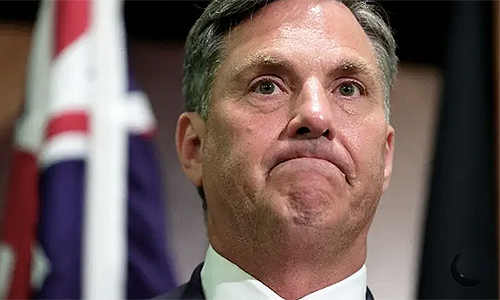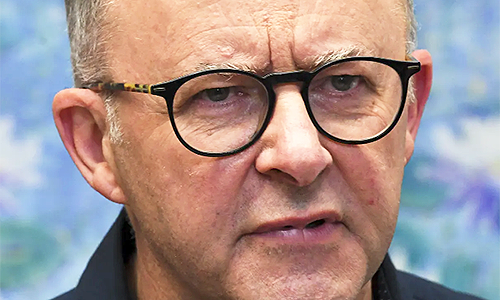For classical conservatives, it was hard to know for what outcome to hope from last Thursday’s UK General Election. Were we to yield to the definition of insanity by voting again for the Conservatives in the hope that this time they might actually be true to their name, or vote for Reform UK with the aspiration of wiping out the party that has betrayed its voters for so long and thereby enable an alternative vehicle to replace it?
Now the dust has settled, it is difficult not to worry that we have the worst of all worlds – a Labour government with the potential to do untold damage alongside a Conservative Party that is neither conservative enough nor sufficiently obliterated for a renewal of orthodox conservatism within to be likely.
We need to be honest about this reality – the rump of 121 Conservative MP remains disproportionately inimical to historic conservatism. If the Tory print media had not predictably done all it could via tactics of fear (about Labour) and smear (against Reform, albeit abetted by Reform’s inability to vet its candidates), it is entirely possible the protagonists of the most recent Conservative betrayal of its electorate would have paid the price in a 1993 Canada-style wipe-out.
As it is, while good Conservative backbench MPs who repeatedly warned the leadership about the impending oncoming iceberg lost their seats, the four most senior architects of defeat, Rishi Sunak, Oliver Dowden, Jeremy Hunt, and James Cleverly all survived. Sitting alongside them in the new Parliament will be several of their colleagues most hostile to social (i.e. genuine) conservatism: Victoria Atkins, Alicia Kearns, Caroline Nokes, Tom Tugenhadt, and Andrew Mitchell. Although some of the so-called ‘wets’, such as Gillian Keegan and Tobias Ellwood, lost their seats, CCHQ has ensured a ‘whack-a-mole’ patronage system whereby they have been replaced on the green benches by others of their ilk.
The consequence of this is the numbers simply do not exist for the remaining small ‘c’ conservatives to renew conservatism from within a Tory party still dominated by globalist technocrats and social liberals. The ‘New Conservatives’, who offered the most positive conservative vision and fresh thinking within the Conservative party for a generation, have been the chief victims of voter anger against the very same issues about which they warned, with Danny Kruger, its co-chair, almost alone in surviving.
Alongside Kruger, even a generous definition of ‘conservative’ leaves minimal representation within the parliamentary party, consisting of the old guard (knights of the realm John Hayes, Edward Leigh, Iain Duncan Smith, Desmond Swayne, Christopher Chope), leadership jostlers (Suella Braverman, Kemi Badenoch, Priti Patel, Robert Jenrick), Essex boys Mark Francois and Andrew Rosindell, and a handful of others such as Esther McVey, Neil O’Brien, and newly elected Nick Timothy to hold the torch for the right of the party – and a number of these need to demonstrate that their claim to traditional conservatism is driven by genuine social conservatism and not simply political expediency.
Even if this group ensured one of its number made it to the final two names given to party members in the forthcoming Conservative Party leadership election, bringing probable victory, it is inconceivable that they could lead a parliamentary party that includes so many who neither understand nor like conservatism under a genuinely conservative manifesto in 2029.
So what options lie ahead for conservatives inside and outside the parliamentary party? One option would be to seek to win the Conservative leadership on a mandate that is explicitly pro-family and nation state, and anti-woke and unchecked immigration, and allow an amicable departure whereby all those who cannot subscribe to such a manifesto are permitted to leave. This might lead to a mass exodus to the Liberal Democrats whereby Ed Davey’s party – far more radical and dangerous than their masquerading as centrists suggests – becomes the official opposition, but such setbacks may be necessary and the result would scarcely be worse than the previous Parliament where conservatism was also absent from the front benches of both the government and official opposition party.
An alternative, which would become necessary should a stitch-up lead to another One Nation Conservative becoming leader, would be to jump ship and seek an alliance with Reform. The main obstacle to this is the deep-seated tribalism and personality clashes that exist. For some Reform voters and leading figures, merging with the Conservative brand is a red line they would be unwilling to cross; while for many Tories, the idea of joining a party of upstarts who won fewer votes and seats last week, is unthinkable – though the idea should not be ruled out, especially since genuine conservatives in the Tory party may soon find themselves isolated and politically closer to Nigel Farage than Rishi Sunak’s successor.
The solution may either need to be a non-aggression pact between Reform and a Tory right cut loose from the pseudo-Tories (a precedent perhaps set by Reform’s non-aggression pact in a few seats with the SDP in last week’s election), or a new movement, perhaps the ‘Reformed Conservatives’. Despite all the complexities, such an alliance is not inconceivable. For one thing, there is relational capital to employ. Lee Anderson was a leading figure in the New Conservatives, Andrew Rosindell attended Nigel Farage’s recent 60th birthday celebration, and Edward Leigh has already suggested inviting Farage to join the Tories.
One advantage of the decimation of the small ‘c’ conservatives inside the parliamentary Tory party, is they are now free to jump ship or create something new. One of the big challenges facing conservative renewal will be to define the parameters that dictate the breadth of the tent it encompasses. Any political party has to permit some breadth to succeed but that breadth cannot lead to diametrically opposed convictions of the sought that has dogged the Tory party. In particular, the challenge will be how to hold together the likes of Kruger and Miriam Cates – surely a major player in any new project – who, though by no means ‘big state’ socialists eschew both individualistic libertarianism and unfettered free markets, with more economically liberal but still socially conservative figures such as Jacob Rees-Mogg and David Frost (note the contrast with the social and economic liberalism of Liz Truss).
The new Parliament is likely to be hyper-progressive on issues as diverse as gender ideology, Gaza, Net Zero, assisted suicide, and decriminalising abortion up to birth (on the latter two issues, a Tory party that includes assisted suicide cheerleader Kit Malthouse and pro-abortion fanatic Caroline Nokes cannot be expected to offer any opposition). In light of these threats, it is imperative a socially conservative coalition is forged that is able to command popular support and take on the more extreme elements of a Labour government.
It may be easier for some of those who have lost their seats but fall under this broad umbrella – Cates, Rees-Mogg, Nick Fletcher, Simon Clarke, Ranil Jayawardena, Andrea Jenkyns, and Farage’s school contemporary Philip Hollobone – to engineer some kind of alliance. Farage’s promotion of marriage, choice for parents so parents can opt to look after preschool children rather than be forced to return to work and rely on the state for childcare, and proposal to raise the personal allowance for income tax during the election campaign, all suggest a coalition with New Conservative-types may be possible.
For such a project to succeed, past grievances, present egos, and future ambitions will need to be put aside in a spirit of forgiveness and generosity. Courage will also be required, for all new projects require risk – just ask those Red Wall Tories who opted not to defect to Reform and yet lost anyway – but the country’s future demands these virtues. One advantage of Reform only winning five MPs is it will not be hampered by unvetted cranks in the coming years. Farage, Anderson, Richard Tice, and Rupert Lowe ought to be palatable colleagues for the Tory right. If they were to join forces together, a mass movement would follow – Reform has announced its intention to form local networks on the ground but most Conservative associations would need little persuasion to jump ship should the party ally with conservative Tories.
The one thing conservatives must not countenance is sleepwalking into the retention of the status quo – a divided Conservative Party and a divided conservative movement. Now is the time to talk – the longer a realignment is delayed, the harder it will be to risk something new; by-elections may come sooner than expected with the opportunity for genuine conservatives who lost last week to be re-elected under a united banner, and next year’s local and devolved elections are already on the horizon. Key players mentioned above need to be dragged into a room and not allowed to leave until a way forward has been brokered; if they succeed, classical conservatives may have genuine hope that what the electorate voted for in 2016 and 2019 could finally have a meaningful voice in Westminster.
The author is an anonymous conservative withholding their name for professional reasons that require neutrality on party political matters.










